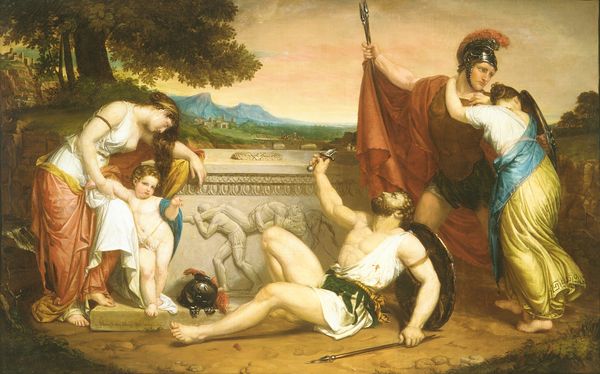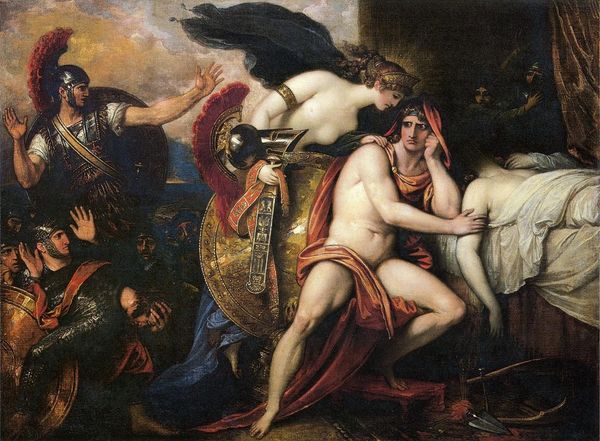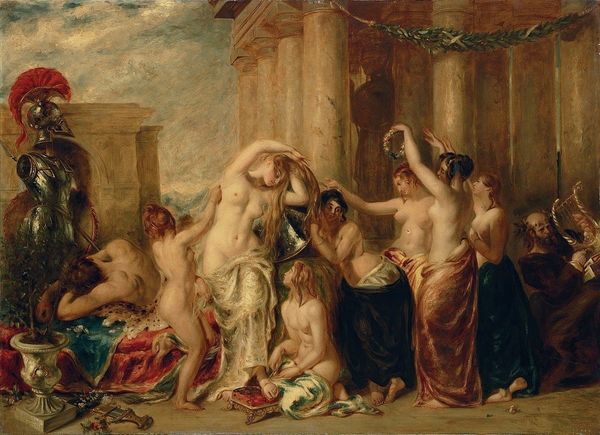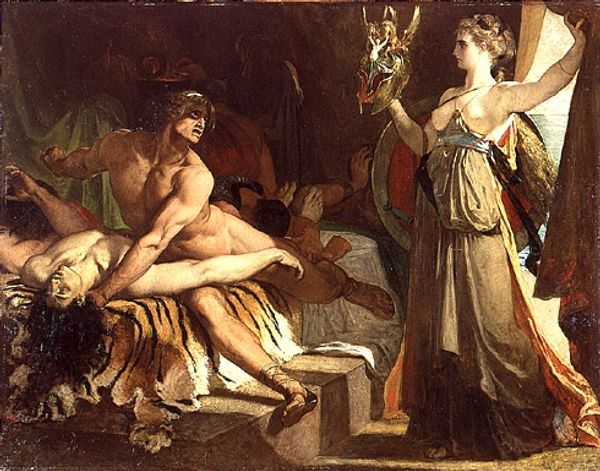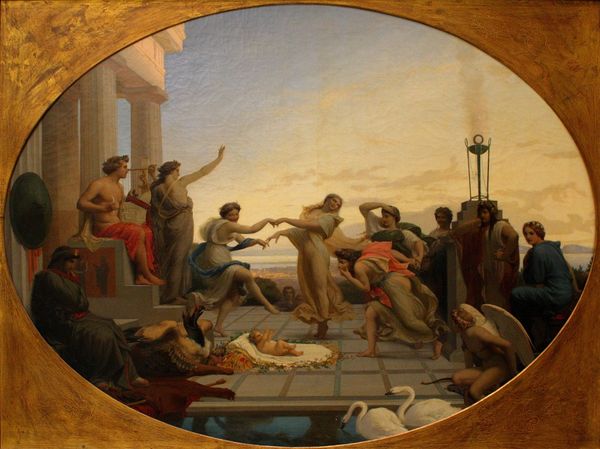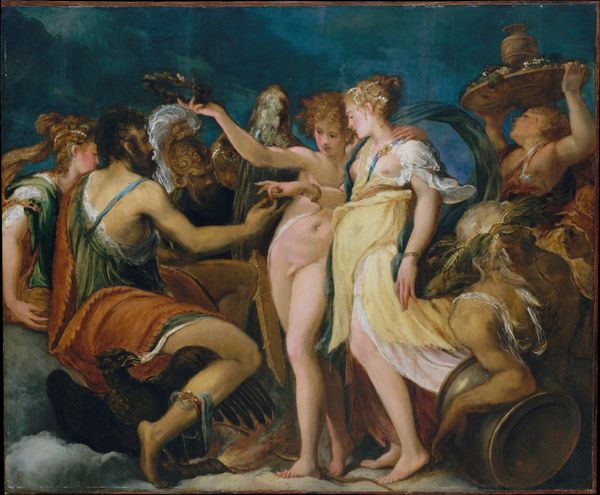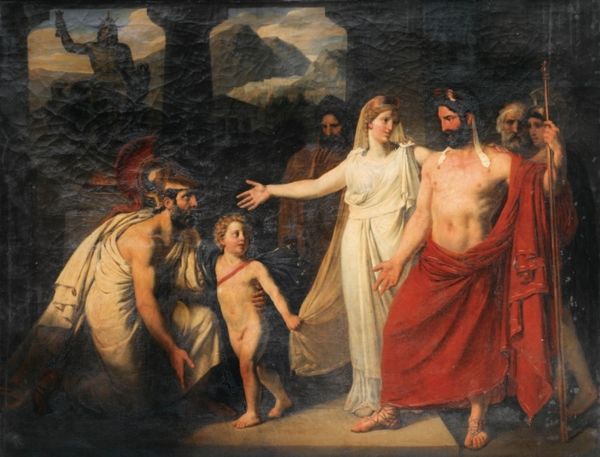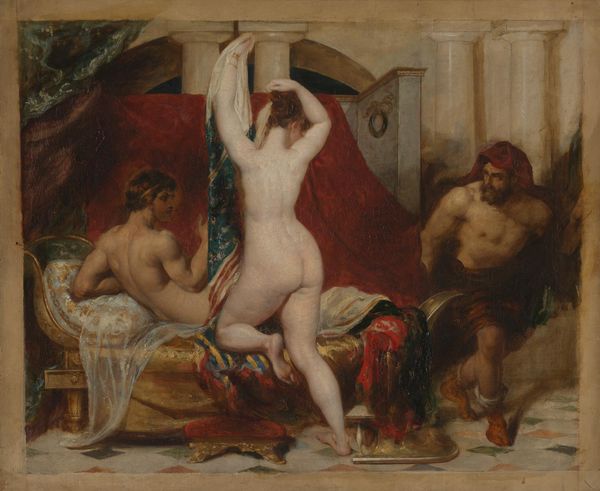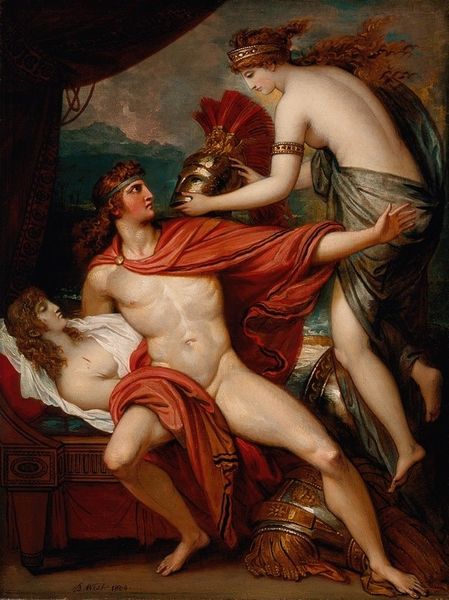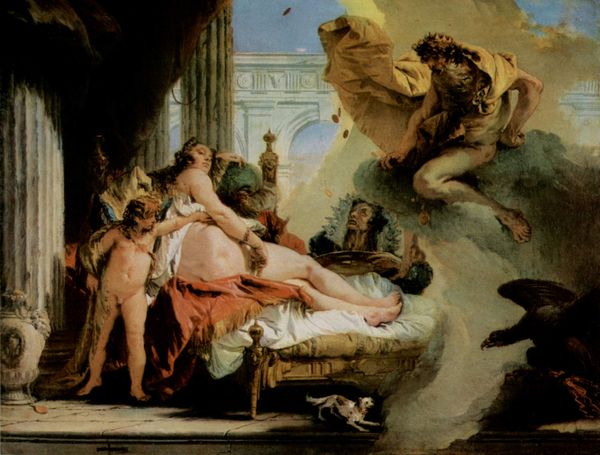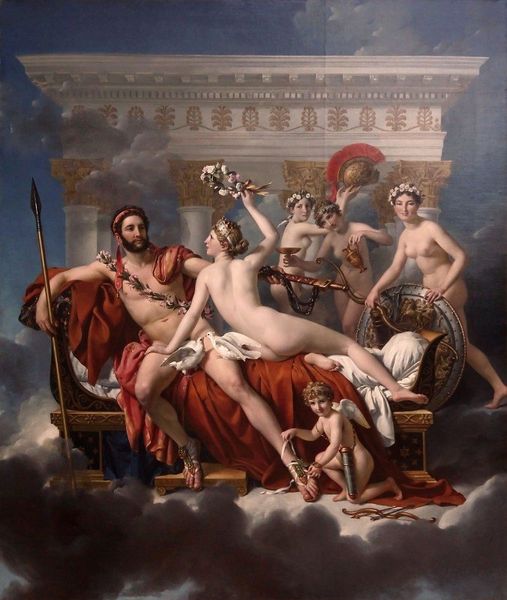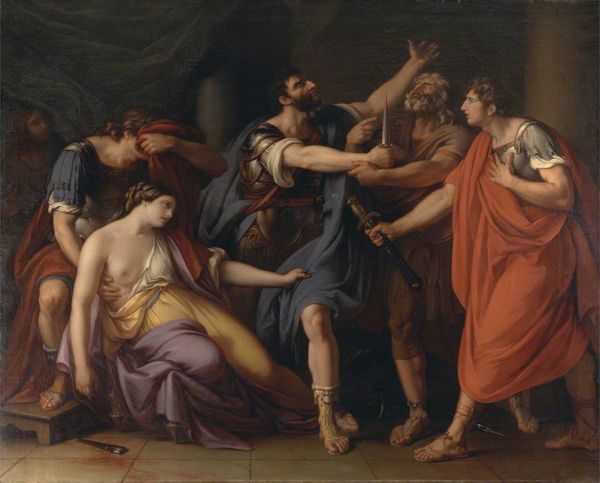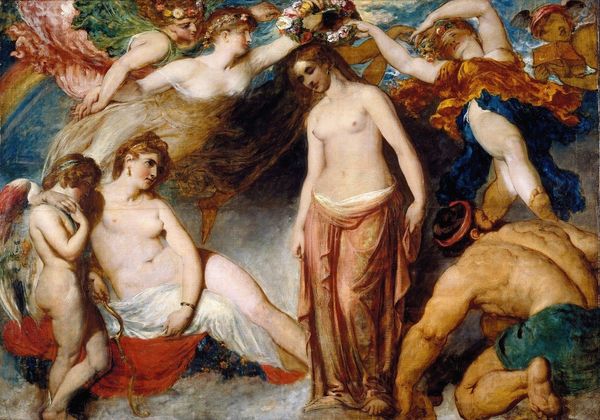
painting
#
gouache
#
narrative-art
#
painting
#
figuration
#
genre-painting
#
history-painting
#
academic-art
#
realism
Copyright: Public domain
Editor: Here we have Léon Bazile Perrault's "The Death of Priam," painted in 1861. It's a striking scene, filled with violence, but there’s also a palpable sense of despair hanging over the whole composition. What's your interpretation of this piece? Curator: This painting, made with gouache and exemplifies academic art, depicts the brutal murder of King Priam during the Sack of Troy, pulling from the pages of Homer’s *Iliad*. It is not merely an illustration of a classical story, though. Considering the period in which it was created, one must consider that such depictions of violence and loss reflected anxieties present in the artist's contemporary society, and this may include fears about social unrest, war, or even changing power dynamics within France itself. Do you see any hints of this reading within the composition itself? Editor: Perhaps in the almost theatrical way the figures are posed? And the stark contrast between the youthful, muscular Pyrrhus and the aged, defenseless Priam highlights the power imbalance? Curator: Exactly. It also subtly touches on themes of colonialism and imperialism. Pyrrhus's conquering of Priam, who is almost idol-like at the foot of what could be interpreted as an altar, and destruction of Troy are echoes of how European powers subjugated other nations, echoing narratives of conquest. Editor: It’s fascinating how a painting rooted in classical mythology can be re-read through the lens of 19th-century socio-political issues. It definitely adds another layer of complexity. Curator: Indeed. By acknowledging these contexts, we can develop a much deeper understanding of the work. The canvas really speaks to those narratives about power, gender and identity and how they were viewed and portrayed in the context of nineteenth century. Editor: I will look at paintings from this time in a totally different light going forward. Thank you.
Comments
No comments
Be the first to comment and join the conversation on the ultimate creative platform.
